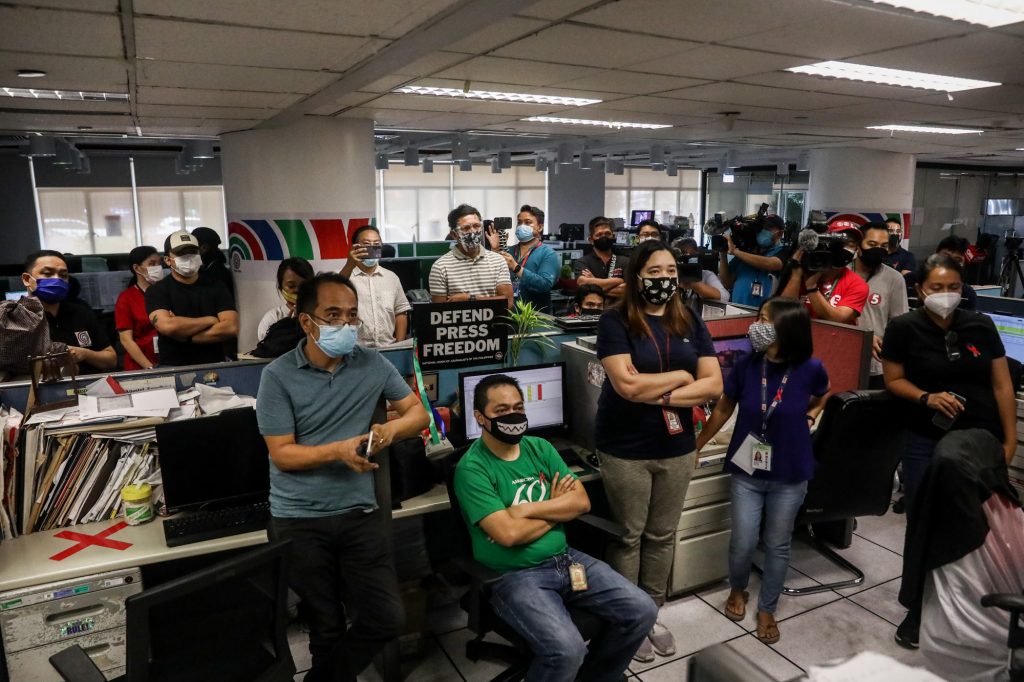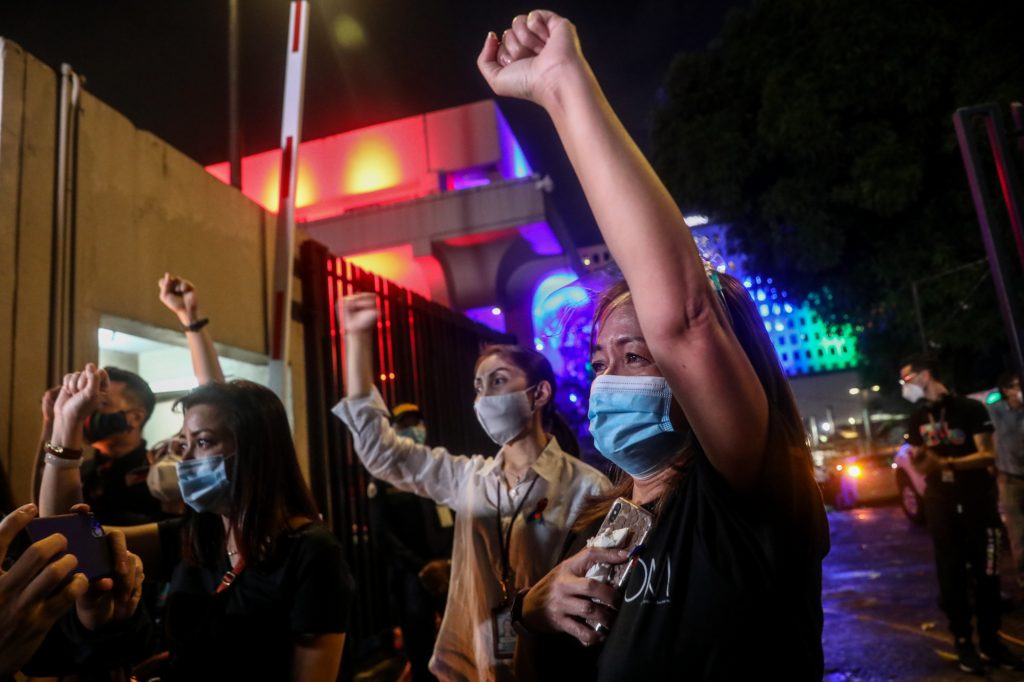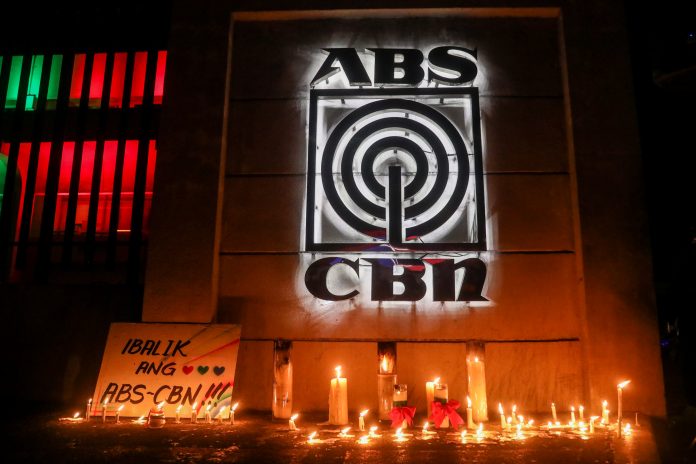The Philippine Congress has killed the country’s largest network, granting the wish of President Rodrigo Duterte to block ABS-CBN out of the airlwaves.
The House of Representatives Committee on Legislative Franchises, voting 70 to 11, rejected on July 10 the grant of a new franchise for the country’s largest network, following the expiration of its old contract in May.
It is the second major blow on the Philippine press, coming less than a month after a Manila court handed down a guilty verdict for cyber libel against Maria Ressa, the chief executive officer of the news digital site Rappler.
Spokesmen of the autocratic Duterte immediately sought to distance his office from the decision, citing separation of powers.
“The Palace has maintained a neutral stance on the issue as it respects the separation of powers between the two co-equal branches of government,” said Harry Roque.
Few citizens are buying this.
In December 2019, Duterte publicly vowed, “I will see to it that you are out.”
That wasn’t his only pronouncement against the network. Jeering at the poor prospects of renewal of its franchise, he had advised ABS-CBN’s owners, “if I were you, I’d just sell it.”
Regina Reyes, the network’s head of integrated news, asked Filipinos to help keep a spotlight on the issue, alluding to the “Never Forget” slogan against the two-decade dictatorship of Ferdinand Marcos.
Wanting a tame media
Duterte’s allies threw everything at ABS-CBN.
Government agencies came to clear the network of tax evasion charges, partisan election coverage claims, allegations of foreign citizenship, and other supposed sins.
Leaders of Duterte’s supermajority followed his penchant for ignoring facts while rampaging against perceived enemies. They also ignored a huge public outcry.
“It is not the view of the [Securities and Exchange Commission] that matters here. It is not the opinion of the [Department of Justice], not even the [Bureau of Immigration], said Deputy Speaker Rodante Marcoleta.
“It is the will of Congress that should be accorded due respect.”
Congress has the sole prerogative to approve franchises. But its members also swear an oath to uphold the Constitution. Trashing clear facts laid down by regulatory agencies shows no respect for the boundaries of governance.
In weeks of hearings, legislators also focused their ire on issues of content, making it clear they seek a tamer news landscape, in contravention of the Bill of Rights that enshrines press freedom.

Inconvenient truths
The timing of the kill sentence on ABS-CBN can’t be ignored.
Congress sat for years on bills seeking renewal of the network’s franchise.
Despite a pledge by legislators to allow operations until a final vote, the National Telecommunications Commission closed down ABS-CBN’s free broadcast service on May 5, a day after the expiration of its contact.
The Office of the Solicitor-General had stacked the odds against the network and its 11,000-strong workforce. It filed a “quo warranto” petition with the Supreme Court. It also threatened NTC officials of graft charges when they initially agreed on continuing operations while Congress debated on ABS-CBN’s franchise renewal.
The closure occurred amidst a government lockdown to contain COVID-19, a “war” that often treated poor citizens like the enemy.
The network’s reporters shone in reportage that highlighted the social inequities and brutalities of Duterte’s lockdown. ABS-CBN’s social foundation raced around the country to deliver relief aid worth tens of millions of dollars to hungry families.
The silencing of the network coincides with a new surge in COVID-19 infections, which have surged past 52,000. The transport sector is in chaos as workers struggle to return to jobs amid wage cuts. Tens of thousands of newly jobless overseas workers are returning.

Resistance
A Social Weather Stations survey in May showed a whopping 83 percent of Filipinos saying their lives were worse off in the past 12 months.
The survey firm, which has regularly shown high popularity ratings for Duterte, described the results as “the worst trend in survey history”.
The killing blow comes as Filipinos brace for the start of implementation of a new anti-terror law that strips citizens of many constitutional safeguards on human rights and civil liberties. It would allow a small group of Cabinet officials to bypass courts in ordering arrests of suspected terrorists.
ABS-CBN has the biggest digital presence among the country’s media companies. The Philippines is considered a global social media capital, with around 80 percent of the population owning smartphones. But rates for the use of the internet are exorbitant, making it difficult for ABS-CBN’s 69-million viewers to have sustained access to its digital platforms.
Vergel Santos, a veteran journalist with the Center for Media Freedom and Responsibility, warns that the killing of ABS-CBN “pre-stages an even more worrisome sense of impunity,” with chill felt by media and its public.
But Duterte could have a real fight in his hands, with 92 percent of television consumers opposed to the network’s closure.
The youth are struggling to enter a depressed job market. They managed to infuse digital protests with new creative oomph during the lockdown period. Activists, despite high risks of arrests, have managed to fuse online and on-ground campaigns.
ABS-CBN has led for years in tapping citizen journalism. As repression worsens in the Philippines, the closure of a legacy highway of expression has sparked new avenues of resistance.
Inday Espina-Varona is an award-winning journalist in the Philippines. She is a recipient of the “Prize for Independence” of the Reporters Without Borders in 2018. The views expressed in this article are the opinions of the author and do not necessarily reflect the editorial stance of LiCAS.news.









